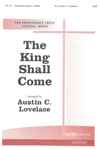- |
User Links
Come, Sing to God with All Your Heart
Hymn Information
- First Line
- Come, sing to God with all your heart
- Author
- Ruth Duck
- Tune Name
- MORNING SONG
- Harmonizer
- Jack Grotenhuis (1983)
- Tune Source
- J. Wyeth's <cite>Repository of Sacred Music</cite>, 1813
- Topic
- God's: Justice · Elements of Worship: Confession
Copyright Information
- Text Copyright
- © 2011 GIA Publications, Inc.
- Tune Copyright
- harm. © 1987 Faith Alive Christian Resources · tune - Public Domain
- Reprint/Projection Information
- Words: Permitted with a license from OneLicense.net. If you do not own this license, please contact the copyright holder for permission.
- Music: Permitted with a license from CCLI.com or from OneLicense.net. If you do not own one of these licenses, please contact the copyright holder for permission.
Scripture References
Confessions and Statements of Faith References
Further Reflections on Confessions and Statements of Faith References
Our songs and prayers include honesty before God in which we express the pain we experience over our own sins and failures, the difficulties in both our lives and others’ lives, and our laments at the suffering and brokenness that marks our world and our lives. We have assurance, says Belgic Confession, Article 26, that Christ, our intercessor, will hear us, “since he suffered, being tempted, he is also able to help those who are tempted.”
We are encouraged to approach the throne with boldness so that we may receive mercy and find grace to help in time of need” (Belgic Confession, Article 26, based on Hebrews 4). “We grieve that the church…has become a broken communion in a broken world” (Our World Belongs to God, paragraph 40).
We also “lament that our abuse of creation has brought lasting damage to the world we have been given...” (Our World Belongs to God, paragraph 51). And we cry to God for those who suffer in our world, knowing “that God…is in a special way the God of the destitute, the poor and the wronged...” (Belhar Confession, Section 4).
Come, Sing to God with All Your Heart
Additional Prayers
Come, Sing to God with All Your Heart
Tune Information
- Name
- MORNING SONG
- Meter
- 8.6.8.6
Recordings
Musical Suggestion
Come, Sing to God with All Your Heart
Hymn Story/Background
Author Information
Before coming to Garrett in 1989, she served as pastor at United Church of Christ parishes in Illinois, Wisconsin, and Massachusetts. Her undergraduate work was done at Southwestern-at-Memphis University, which is now called Rhodes College.
She holds two masters degrees—one from Chicago Theological Seminary and one from the University of Notre Dame. Her doctorate in theology was earned at Boston University. Her academic credentials are weighty ones and balance beautifully with her pastoral experience dealing with the everyday tasks as the spiritual leader of a parish community.


 My Starred Hymns
My Starred Hymns






